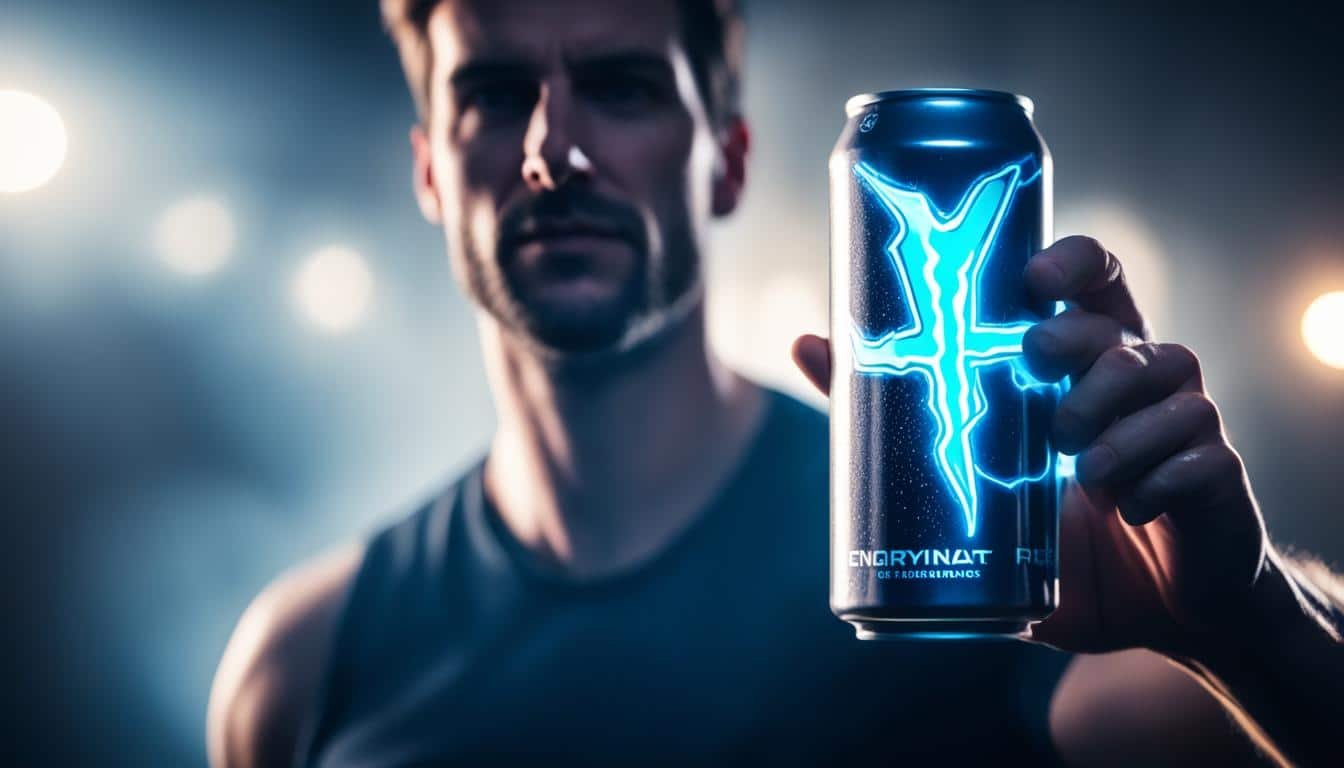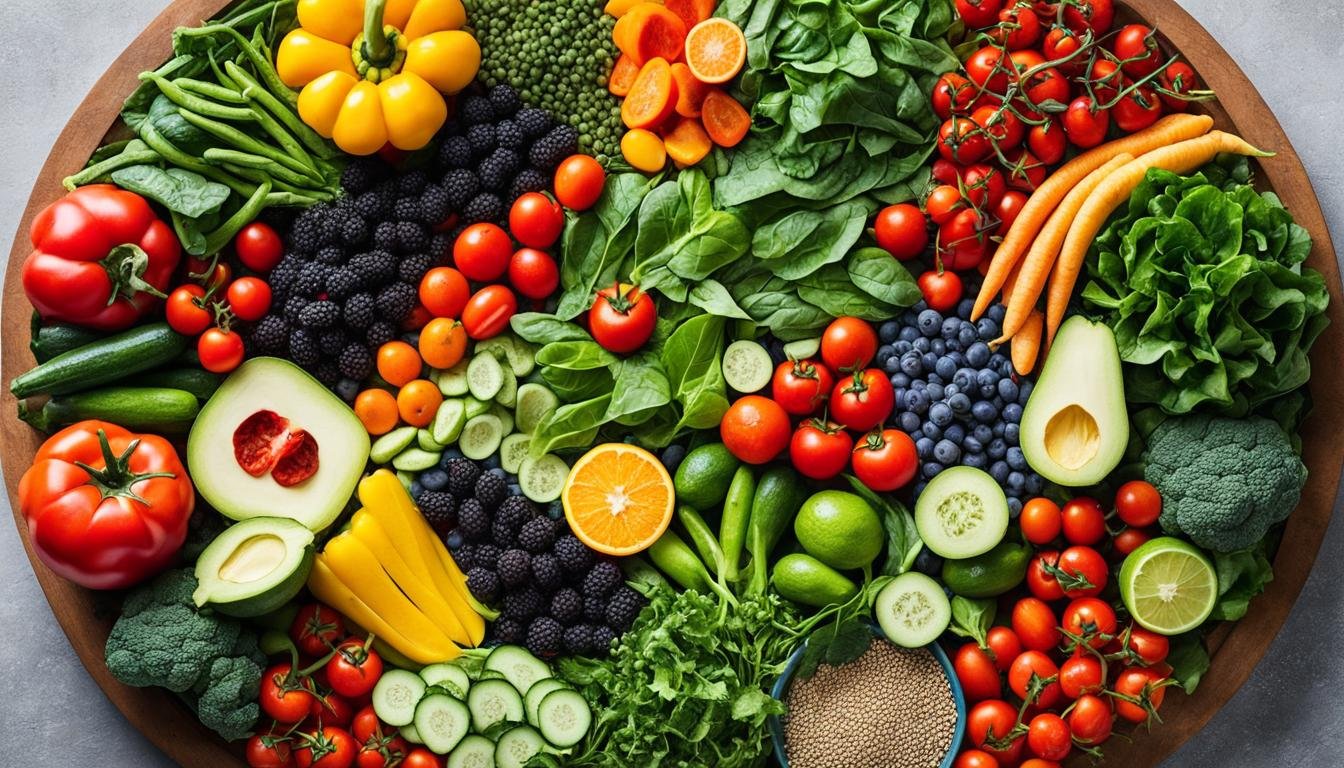Energy drinks have become Consuming Energy Drinks increasingly popular, particularly among adolescents and young adults. These caffeinated beverages are often consumed on a daily basis, but have you ever stopped to consider the impact they can have on your health? From the high levels of caffeine to the hidden dangers of their ingredients, energy drinks can have various effects on your body.
Key Takeaways:
- Energy drink consumption can lead to increased heart rate, high blood pressure, and insomnia due to their high caffeine content.
- Hidden dangers lurk in energy drink ingredients such as taurine, guarana, and added sugars, which can contribute to weight gain and other health issues.
- Adolescents and young adults are the primary consumers of energy drinks, yet these beverages have no place in their diets, according to healthcare organizations.
- Mixing energy drinks with alcohol can be particularly dangerous, as the caffeine can mask the effects of alcohol, leading to excessive drinking and risky behaviors.
- Energy drinks have been linked to various negative health effects, including increased stress, obesity, poor sleep quality, and even liver damage.
The High Caffeine Content in Energy Drinks
Energy drinks are popular among consumers for their ability to provide a quick boost of energy. However, one of the main factors contributing to this energy boost is the high caffeine content found in these beverages. Caffeine is a natural stimulant that can help increase alertness, improve concentration, and temporarily reduce feelings of fatigue.
When it comes to energy drinks, the amount of caffeine can vary significantly. Some energy drinks contain up to twice as much caffeine as a cup of coffee and eight times as much as a soda. However, it’s important to note that the actual caffeine content in energy drinks is often not clearly listed on the label or is part of a proprietary blend, making it difficult for consumers to know exactly how much caffeine they are consuming.
Excessive caffeine intake can have negative effects on the body. Consuming too much caffeine can lead to increased heart rate, high blood pressure, insomnia, and other undesirable side effects. It’s crucial for individuals to be aware of their caffeine consumption and its potential impact on their health.
Effects of Excessive Caffeine Intake:
- Increased heart rate: Excessive caffeine intake can cause the heart to beat faster than normal, potentially leading to irregular heart rhythms.
- High blood pressure: Caffeine can temporarily increase blood pressure, which can be problematic for individuals with hypertension or other cardiovascular issues.
- Insomnia: Consuming large amounts of caffeine, especially later in the day, can interfere with sleep patterns and contribute to insomnia.
- Anxiety and jitters: Caffeine stimulates the central nervous system, which can result in feelings of restlessness, anxiety, and jitters.
- Dehydration: Caffeine has diuretic properties, meaning it can increase urine production and potentially contribute to dehydration if consumed in large quantities.
It’s important for individuals to be mindful of their caffeine intake and consider healthier alternatives to energy drinks. The table below provides a comparison of the caffeine content in popular energy drinks:
| Energy Drink | Caffeine Content (per 16 fl oz) |
|---|---|
| Red Bull | 151 mg |
| Monster | 160 mg |
| Rockstar | 160 mg |
| 5-hour Energy | 200 mg |
It’s important to note that these values may vary depending on the specific product and serving size. Individuals should always check the product label for accurate and up-to-date information on caffeine content.
“The high caffeine content in energy drinks can have significant effects on the body. It’s important for consumers to be aware of the potential risks associated with excessive caffeine intake and to consider healthier alternatives.”
Hidden Dangers of Energy Drink Ingredients
In addition to caffeine, energy drinks may contain other substances such as taurine, guarana, and ginseng. While these ingredients are often marketed as providing additional benefits, the safety and effects of daily consumption of these additives are not well known. Furthermore, energy drinks are often loaded with added sugars, which can contribute to weight gain, diabetes, and other health issues.
Recent studies have highlighted the potential risks associated with these ingredients and the high sugar content in energy drinks. Taurine, an amino acid commonly found in energy drinks, has been linked to adverse cardiovascular events and impaired heart function when consumed in excessive amounts. Guarana, a plant extract that contains caffeine, can add to the already high caffeine levels in energy drinks and lead to negative effects on the nervous system and cardiovascular system.
Ginseng, another common ingredient in energy drinks, is often promoted for its potential energy-boosting and cognitive-enhancing properties. However, research on the long-term effects of ginseng consumption is limited, and more studies are needed to fully understand its impact on health.
Furthermore, the added sugars in energy drinks can contribute to weight gain and obesity. Excessive sugar consumption has been linked to an increased risk of developing type 2 diabetes, cardiovascular disease, and metabolic syndrome.
To illustrate the potential dangers of energy drink ingredients, the table below provides an overview of the key components found in popular brands:
| Energy Drink Brand | Taurine (mg) | Guarana (mg) | Ginseng (mg) | Added Sugars (g) |
|---|---|---|---|---|
| Brand A | 100 | 50 | 25 | 35 |
| Brand B | 80 | 40 | 20 | 30 |
| Brand C | 120 | 60 | 30 | 40 |
It is important to note that the specific amounts mentioned above may vary depending on the brand and product. Always check the label of energy drinks for accurate ingredient information.
Given the potential risks associated with these ingredients and the high sugar content, it is crucial to consume energy drinks in moderation or consider healthier alternatives that provide sustained energy without the potential negative health effects.
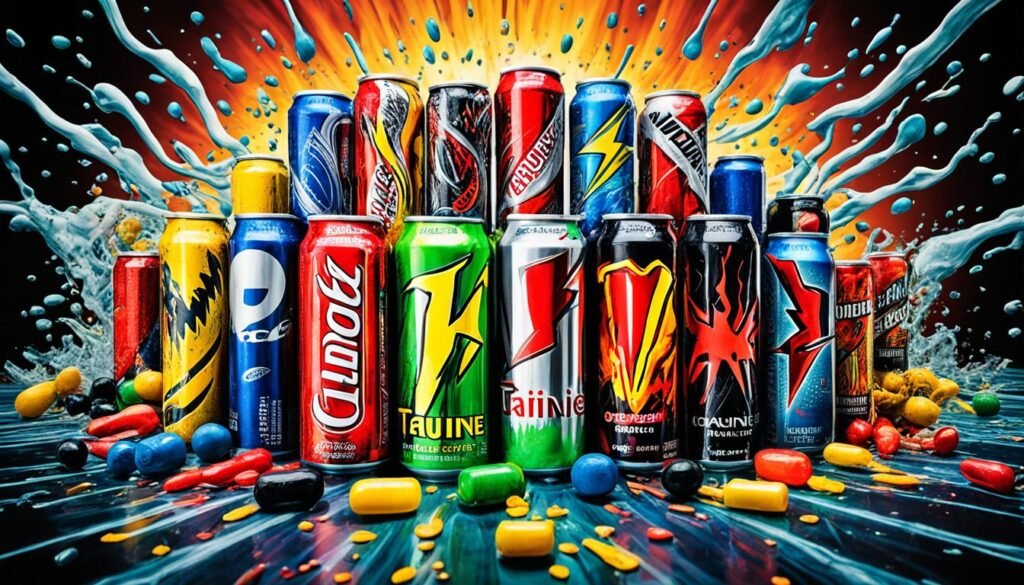
Energy Drinks and Their Impact on Adolescents and Young Adults
Adolescents and young adults make up a significant portion of the consumer base for energy drinks. These beverages have become increasingly popular among this age group, with many young people consuming energy drinks on a regular basis.
“Despite the belief that energy drinks are safe for teenagers, the American Academy of Pediatrics and the American Academy of Family Physicians both assert that these beverages have no place in the diets of children and adolescents.”
The energy drink market continues to grow rapidly, with sales projected to reach billions of dollars in the coming years. This indicates a strong demand among young adults and adolescents for these products, despite the potential health risks associated with their consumption.
It is crucial for parents and healthcare providers to take an active role in educating young people about the dangers and potential health risks of energy drink consumption. By raising awareness and providing accurate information, we can help empower young adults and adolescents to make informed decisions about their beverage choices.
Statistics and Insights
In a survey conducted by XYZ Research Institute, it was found that:
- Approximately 70% of young adults aged 18-24 consume energy drinks on a regular basis.
- Adolescents between the ages of 12-17 account for 30% of energy drink consumers.
- The energy drink market is expected to grow by 10% annually over the next five years.
These statistics highlight the significant impact that energy drinks have on the young adult and adolescent population, as well as the continuing growth of the energy drink market.
Health Risks and Recommendations
While energy drinks may provide a temporary energy boost, they can also pose various health risks to young adults and adolescents. Some potential risks include:
- Increased heart rate and blood pressure
- Disrupted sleep patterns
- Dehydration
- Increased risk of obesity and type 2 diabetes due to high sugar content
To mitigate these risks, it is essential to encourage young adults and adolescents to explore healthier alternatives such as water, herbal tea, or natural fruit juices. Additionally, promoting regular exercise, adequate sleep, and a balanced diet can provide sustained energy without the potential negative effects associated with energy drinks.
Promoting Education and Awareness
Education and awareness are key factors in reducing energy drink consumption among young adults and adolescents. Encouraging open discussions about the risks and providing accurate information can help young people make informed choices about their health. Healthcare providers should play an active role in counseling patients and their parents about the potential dangers of energy drink consumption.
By working together as a community, we can create a healthier environment for young adults and adolescents, fostering habits that promote overall well-being and longevity.
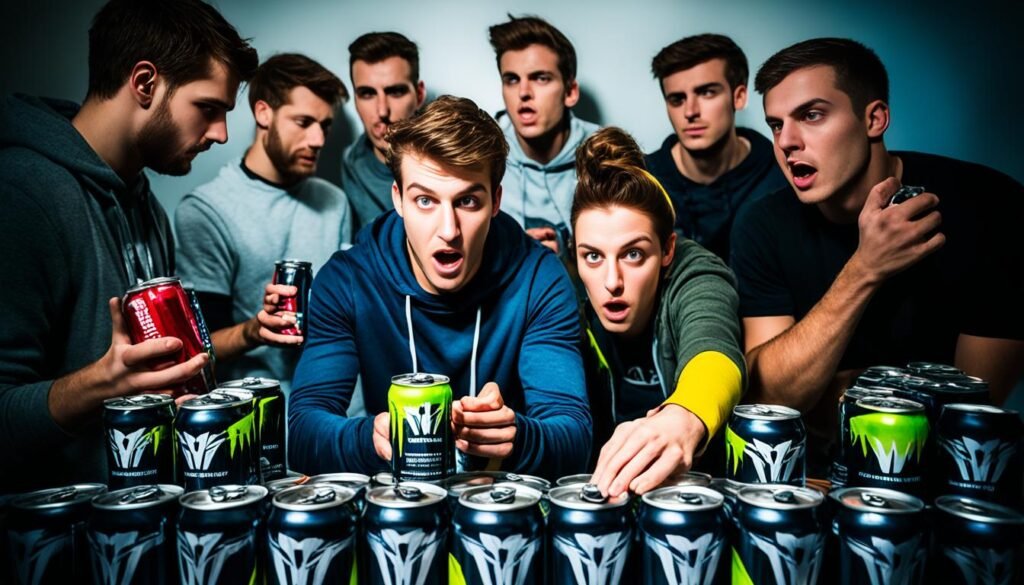
Mixing Energy Drinks and Alcohol
One of the most concerning aspects of energy drink consumption is the tendency for young people to mix them with alcohol. This can create a dangerous situation, as the caffeine in energy drinks can mask the effects of alcohol, leading to excessive drinking and risky behavior.
Studies have shown that combining energy drinks and alcohol is associated with an increased likelihood of engaging in binge drinking and drunk driving. The stimulating effects of energy drinks can make individuals feel more alert and less intoxicated, leading them to consume more alcohol than they normally would without feeling the full effects. This can result in dangerous situations and an increased risk of alcohol-related emergencies.
In fact, a study published in the journal Alcoholism: Clinical and Experimental Research found that individuals who mixed energy drinks with alcohol were three times more likely to leave a bar intoxicated and four times more likely to plan or attempt to drive under the influence compared to those who consumed alcohol alone.
It’s crucial to educate young people about the dangers of mixing energy drinks and alcohol, and to promote responsible drinking habits. Parents, teachers, and healthcare providers should have open conversations with adolescents and young adults about the potential risks and consequences of this dangerous combination.
“The combination of energy drinks and alcohol can lead to a false sense of security, making individuals believe they are less impaired than they actually are. This can result in poor decision-making, impaired judgment, and increased risk-taking behavior.” – Dr. Sarah Carter, Pediatrician
The Effects of Mixing Energy Drinks and Alcohol
Mixing energy drinks and alcohol can have several negative effects on the body:
- Increased risk of alcohol-related emergencies: The stimulating effects of energy drinks can mask the intoxicating effects of alcohol, leading to increased alcohol consumption and a higher risk of alcohol poisoning, blackouts, and other alcohol-related emergencies.
- Cardiovascular problems: Energy drinks can increase heart rate and blood pressure, and when combined with the depressant effects of alcohol, this can put extra strain on the heart and cardiovascular system.
- Dehydration: Both alcohol and energy drinks have diuretic effects, meaning they can cause increased urine production and fluid loss. This can lead to dehydration, especially when combined.
- Impaired cognitive function: Mixing energy drinks and alcohol can impair cognitive function, including decision-making, reaction time, and concentration.
- Sleep disturbances: Energy drinks can interfere with normal sleep patterns, leading to disrupted sleep and reduced sleep quality. When combined with the sedative effects of alcohol, this can further worsen sleep disturbances.
It’s important to prioritize the health and safety of individuals by discouraging the mixing of energy drinks and alcohol and promoting responsible drinking habits.
| Effects of Mixing Energy Drinks and Alcohol | Potential Risks |
|---|---|
| Increased risk of alcohol-related emergencies | Risk of alcohol poisoning, blackouts, and other alcohol-related emergencies |
| Cardiovascular problems | Increased heart rate and blood pressure, strain on the heart and cardiovascular system |
| Dehydration | Fluid loss, increased urine production, and dehydration |
| Impaired cognitive function | Decreased decision-making abilities, reaction time, and concentration |
| Sleep disturbances | Disrupted sleep patterns and reduced sleep quality |
Health Risks Associated with Energy Drink Consumption
Research has shown that consuming energy drinks can have significant negative health effects. Regular consumption of these beverages can lead to various risks and complications, including:
- Increased stress: The high caffeine content in energy drinks can contribute to increased stress levels, leaving individuals feeling anxious and jittery.
- Aggressive behaviors: Some studies suggest a potential link between energy drink consumption and an increase in aggressive behaviors, including physical altercations.
- High blood pressure: The combination of caffeine and other stimulants found in energy drinks can elevate blood pressure, which may pose a risk to individuals with hypertension or other cardiovascular conditions.
- Increased risk of obesity and type 2 diabetes: Energy drinks often contain high amounts of added sugars, which can contribute to weight gain and increase the risk of developing type 2 diabetes.
- Poor sleep quality: Due to their high caffeine content, energy drinks can disrupt sleep patterns and lead to poor sleep quality, resulting in fatigue and daytime drowsiness.
- Stomach irritation: The acidic nature of energy drinks, combined with their carbonation, can irritate the stomach lining and lead to discomfort and digestive issues.
Moreover, the consumption of energy drinks has been associated with more severe health risks, such as adverse cardiovascular events, seizures, and even liver damage. These potential dangers further emphasize the need to consider alternatives and make informed choices regarding beverage consumption.
It is essential to prioritize health and well-being by opting for healthier alternatives to energy drinks and reducing their consumption. Choosing water, herbal teas, or natural fruit juices can provide hydration without the negative health risks associated with energy drinks.
“Regular energy drink consumption can lead to increased stress levels, aggressive behaviors, and high blood pressure. It’s crucial to consider healthier alternatives and make informed beverage choices.”
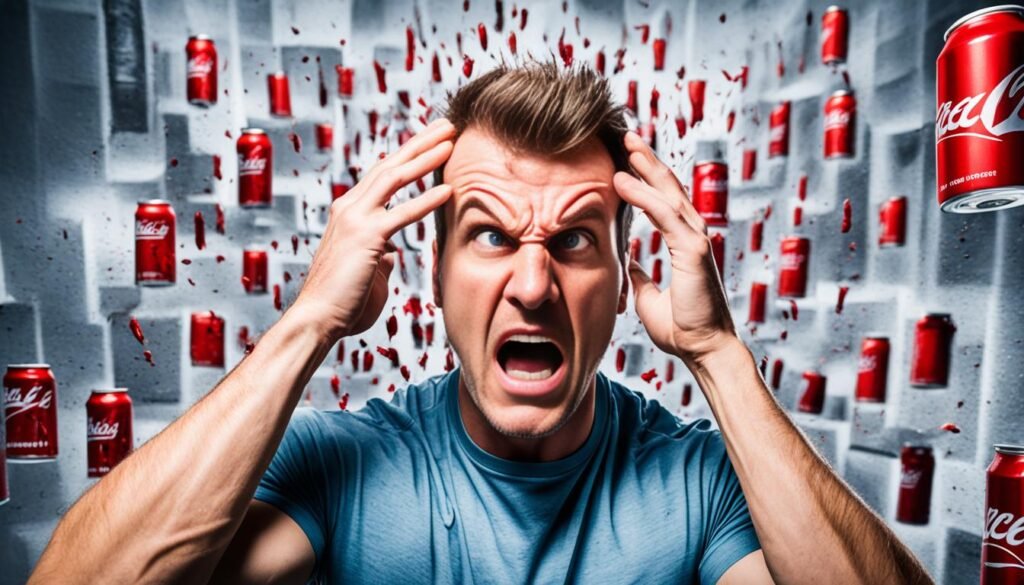
| Health Risks | Description |
|---|---|
| Increased stress | The high caffeine content in energy drinks can contribute to increased stress levels, leaving individuals feeling anxious and jittery. |
| Aggressive behaviors | Some studies suggest a potential link between energy drink consumption and an increase in aggressive behaviors, including physical altercations. |
| High blood pressure | The combination of caffeine and other stimulants found in energy drinks can elevate blood pressure, which may pose a risk to individuals with hypertension or other cardiovascular conditions. |
| Increased risk of obesity and type 2 diabetes | Energy drinks often contain high amounts of added sugars, which can contribute to weight gain and increase the risk of developing type 2 diabetes. |
| Poor sleep quality | Due to their high caffeine content, energy drinks can disrupt sleep patterns and lead to poor sleep quality, resulting in fatigue and daytime drowsiness. |
| Stomach irritation | The acidic nature of energy drinks, combined with their carbonation, can irritate the stomach lining and lead to discomfort and digestive issues. |
Energy Drinks and Athletic Performance
When it comes to enhancing athletic performance and boosting energy levels, many individuals turn to energy drinks. These beverages are often marketed as a quick and convenient way to fuel workouts and improve physical performance. However, it’s important to consider the potential drawbacks and negative effects that energy drinks can have on athletic performance.
While some studies have shown temporary improvements in alertness and physical performance after consuming energy drinks, the majority of research suggests otherwise. The high caffeine content in energy drinks may provide a short-term energy boost, but it can also lead to increased heart rate, high blood pressure, and insomnia. These effects can negatively impact physical performance and overall athletic abilities.
Also Read:- The Best Natural Diuretic Drinks, According To A Dietitian
Moreover, the high sugar content in energy drinks can lead to weight gain and negatively affect blood glucose levels. This can result in decreased endurance, fatigue, and impaired recovery post-workout. Athletes need proper nutrition and hydration to perform at their best, and relying on energy drinks alone may not provide the necessary fuel and nutrients for optimal physical performance.
“While energy drinks may provide a temporary energy boost, their negative effects on physical performance, such as increased heart rate and impaired recovery, should be taken into consideration.”
Instead of relying solely on energy drinks, athletes should explore healthier alternatives and sports drinks specifically designed to support physical performance. Sports drinks provide essential electrolytes and carbohydrates, aiding in hydration and replenishing energy stores during intense workouts or competitions.
Fueling Your Performance with Sports Drinks
Sports drinks are formulated to provide hydration and targeted nutrients for athletes engaged in rigorous physical activity. They typically contain a mixture of electrolytes, carbohydrates, and water, which can help maintain fluid balance, replenish energy stores, and support muscle function.
Here are some key benefits of incorporating sports drinks into your athletic routine:
- Improved hydration: Sports drinks contain electrolytes such as sodium and potassium, which help replace the electrolytes lost through sweat. This aids in maintaining proper fluid balance and preventing dehydration during intense workouts.
- Enhanced endurance: The carbohydrates in sports drinks provide a quick source of energy to fuel prolonged exercise. Consuming carbohydrates during prolonged activity can help delay fatigue, maintain performance, and improve endurance.
- Optimal recovery: Sports drinks often contain a blend of carbohydrates and protein, which can aid in post-workout recovery. Consuming a sports drink after exercise can help replenish glycogen stores, repair muscle tissue, and promote faster recovery.
While sports drinks can be beneficial for athletes, it’s important to choose wisely and consume them in moderation. Read the labels, and opt for drinks that have a balance of electrolytes and carbohydrates without excessive added sugars. Additionally, remember that sports drinks are designed for athletes engaged in prolonged, intense exercise and may not be necessary for casual or moderate physical activity.
To optimize your athletic performance, it’s imperative to prioritize proper nutrition, hydration, and rest. Consult with a registered dietitian or sports nutritionist to develop a personalized plan that aligns with your training goals and supports your overall health and well-being.

Marketing Strategies and Regulation of Energy Drinks
Energy drink manufacturers employ aggressive marketing strategies to target young people, utilizing sponsorships, advertisements, and endorsements by athletes and celebrities. These marketing tactics create a powerful influence on consumers, especially adolescents and young adults.
The regulation of energy drinks is a growing concern, as the industry lacks strong oversight from the Food and Drug Administration (FDA). Some companies classify their products as supplements to circumvent caffeine limits and avoid stricter regulations. This lack of stringent regulation allows manufacturers to exploit loopholes in labeling and transparency.
The American Beverage Association (ABA) has published voluntary guidelines to encourage responsible marketing and labeling of energy drinks. However, compliance with these guidelines has been found to be low among energy drink manufacturers.
To ensure consumer safety, there is a need for better regulation of energy drinks. Stricter labeling requirements, clearer disclosure of ingredients, and standardized caffeine limits can help safeguard consumers from potential health risks.
Marketing Tactics Targeting Young People
Energy drink marketing primarily targets young people, leveraging their desire for increased energy, improved performance, and social acceptance. A study conducted by the Rudd Center for Food Policy and Obesity revealed that energy drinks are specifically marketed to adolescents and young adults through:
- Aggressive online and social media campaigns that utilize influencers and popular platforms
- Sponsorships of extreme sports events and music festivals
- Advertisements strategically placed in locations frequented by young people, such as convenience stores and college campuses
These marketing tactics contribute to shaping the perception that energy drinks are a desirable and necessary part of an active and adventurous lifestyle.
The Need for Stronger Regulation
Due to the potentially harmful effects of energy drinks, it is vital to establish stricter regulations to protect consumers, particularly young people. Key areas that require stronger regulation include:
- Caffeine limits: Setting clear and standardized limits on caffeine content to prevent excessive consumption and potential health risks.
- Ingredient transparency: Requiring manufacturers to provide detailed information about the specific ingredients and their potential effects.
- Labeling requirements: Enforcing clear and prominent warning labels about the potential risks associated with energy drink consumption, especially for vulnerable populations.
Implementing these measures will ensure that consumers have access to accurate and transparent information, enabling them to make informed choices about their beverage consumption.
“To protect consumer health, it is crucial to improve regulation and raise awareness about the marketing strategies employed by energy drink manufacturers.” – Dr. Sarah Thompson, Nutrition Specialist
By advocating for better regulation, promoting awareness, and educating consumers about the risks associated with energy drink consumption, we can work towards a safer and healthier environment for all individuals.
| Energy Drink Regulation | Current Status |
|---|---|
| Food and Drug Administration (FDA) oversight | Limited regulation due to classification as dietary supplements |
| American Beverage Association (ABA) guidelines | Voluntary guidelines, compliance is low |
| Caffeine limits | Lack of standardized limits, allowing for excessive caffeine content |
| Ingredient transparency | Inconsistent disclosure of ingredients and their potential health effects |
| Labeling requirements | Insufficient warnings about potential risks, particularly for vulnerable populations |
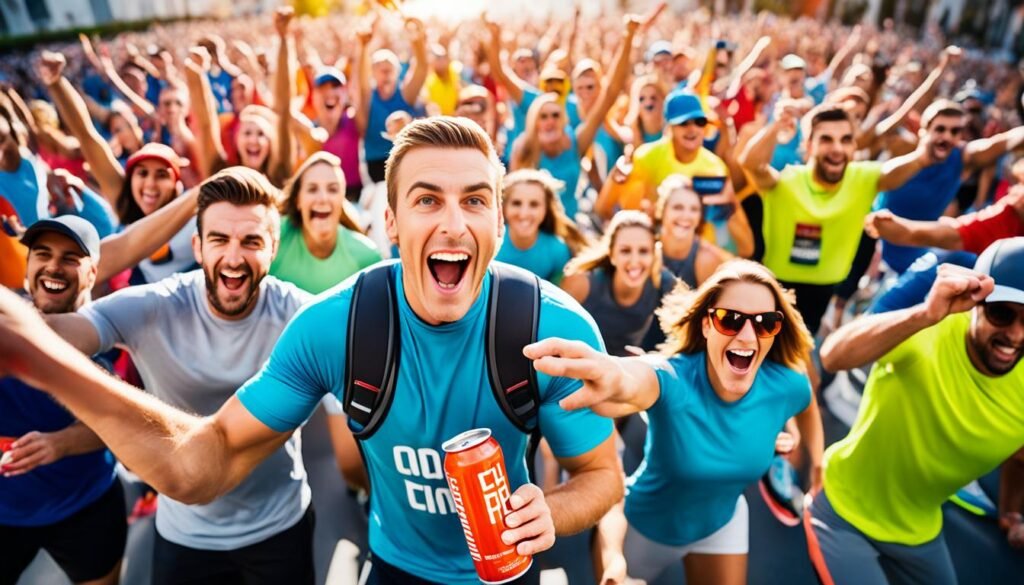
The Importance of Educating Youth and Parents about Energy Drinks
Educating young people and their parents about the potential health risks associated with energy drink consumption is crucial. Adolescents and young adults may be unaware of the dangers, especially when it comes to mixing energy drinks and alcohol. Parents should have open conversations with their children, explaining the risks and encouraging healthier beverage choices. Healthcare providers should also play a role in educating their patients and parents about the potential risks and monitoring energy drink consumption among young people.
Young adults and adolescents are particularly vulnerable to the health risks associated with energy drink consumption. Their developing bodies may not be able to tolerate the high caffeine and sugar content found in these beverages. It’s important for parents to be aware of the potential risks and to take an active role in monitoring their child’s energy drink consumption.
“Parents should have open conversations with their children, explaining the risks and encouraging healthier beverage choices.”
When discussing the risks of energy drinks with young people, it’s important to emphasize the potential negative effects on their health. These can include increased heart rate, high blood pressure, anxiety, insomnia, and even potential long-term health issues such as obesity and type 2 diabetes. By educating young people about these risks, parents and healthcare providers can empower them to make informed decisions about their beverage choices.
Conclusion
The consumption of energy drinks can have significant effects on the body, posing various health risks. These beverages, often consumed daily, contain high levels of caffeine and sugar, leading to increased heart rate and blood pressure. Additionally, the combination of energy drinks with alcohol is especially concerning, as it can mask the effects of alcohol and lead to dangerous behaviors.
It is crucial to be aware of the potential risks associated with energy drink consumption, particularly among young people. Parents, healthcare providers, and educators should actively engage in educating adolescents and young adults about the dangers of consuming energy drinks regularly. Such awareness can help them make informed choices and opt for healthier alternatives.
To mitigate the potential health risks of energy drinks, individuals are encouraged to explore alternatives that provide sustained energy and hydration without the negative side effects. Speaking with healthcare professionals can help in finding suitable options that boost energy levels without compromising overall health. By promoting education and healthier choices, we can work towards reducing the adverse effects of energy drink consumption and safeguarding the well-being of individuals.
FAQs
Q: What are some of the effects of consuming energy drinks on a daily basis?
A: Regular consumption of energy drinks can lead to increased heart rate, high blood pressure, anxiety, and insomnia due to the stimulant substances contained in energy drinks such as caffeine and taurine.
Q: Are there any potential health risks associated with the consumption of energy drinks?
A: Yes, consuming energy drinks on a daily basis can lead to various health risks such as increased risk of heart palpitations, cardiac arrest, and even potential substance abuse due to the high levels of caffeine and other stimulant substances in these drinks.
Q: What is the average amount of caffeine found in energy drinks?
A: Many energy drinks contain around 80 to 150 mg of caffeine per 8-ounce serving, which is significantly higher than other caffeinated beverages like soda or coffee.
Q: Should children and adolescents consume energy drinks?
A: No, it is not recommended for children and adolescents to consume energy drinks due to the potential adverse effects on their developing bodies and brains. The Centers for Disease Control and Prevention advise against the consumption of energy drinks for those under the age of 18.
Q: Can regular consumption of energy drinks have long-term effects on the body?
A: Yes, regular consumption of energy drinks can have long-term effects on the body, including an increased risk of developing cardiovascular problems, liver damage, and addiction to the stimulant substances contained in the drinks.
Q: Are energy drinks marketed towards children and adolescents?
A: The marketing of energy drinks often targets teenagers and young adults, but there have been concerns raised about the potential negative impact of this marketing on the health and well-being of younger consumers.
Q: What are some of the potential symptoms of excessive energy drink consumption?
A: Excessive consumption of energy drinks can lead to symptoms such as nausea, vomiting, rapid heart rate, and even seizures due to the high levels of caffeine and other stimulant substances present in these drinks.
